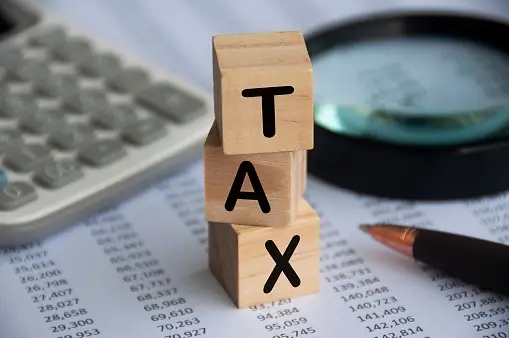Hello Millenial Readers,
In the past few weeks, we have been having conversations around the current finance bill 2024 in which there have been a lot of opinions with some that may be for but many are not for the changes being proposed. We have seen several discussions across various media in Kenya where people are trying to break down the understanding of the proposal and how it will affect us as individuals and businesses.
The most common theme in the proposed bill is an increase in taxes for both people and businesses. However, even though businesses are taxed, normally it is rolled on to (Passed on to) the person who will eventually pay for the service at the end i.e. you and I. When we go to supermarkets and check the receipts, we often see two prices on some goods i.e. the actual cost of the item we have bought and the amount that goes to the government in the form of Value Added Tax (aka VAT). However, there are some goods that are currently not taxed such as the famous bread that is a staple breakfast meal in some homes.
I often hear a statement that was once said that the only two sure things on earth are death and taxes. Taxation is a common theme in all countries. However, the structure may be different. For example, in developed countries such as America, not only do they pay taxes to the federal government (which could be compared to the Kenyan National Government) but also different states (much like our counties here) have their own taxes that their residents pay.
According to Statista.com, Kenya collected tax revenue that was worth Ksh 1.89 trillion by the fiscal year 2022/2023 and the main sources of the tax revenue were income tax which includes PAYE (Pay as You Earn), Import duty (tax collected on items imported and some that are exported in the country), excise duty (taxes that are imposed on goods that are manufactured) and Value Added Tax (VAT). By December last year, the same source states that they collected around Ksh 1 trillion.
Taxes can either be direct where individuals have to pay the government e.g. Pay As You Earn, customs duty when importing items such as cars etc. Taxes can be indirect where the government places the responsibility of a particular tax being paid by an individual or group e.g. a Company. The individual or the company will then transfer the burden of paying it to the consumer who will buy the product in the end e.g. VAT. In the case of bread, if the bill passes through and bread is no longer exempted from VAT, the bread-making companies will be required to pay 16% of the price of bread to the government. However, as most businesses do, businesses will not bear this burden but it is the everyday Kenyan who will bear the burden of the tax as the bread price will be raised to accommodate the tax.
Taxes are one of the ways government raises revenue or income and there are benefits to it as follows:
1. Better Infrastructure
One of the benefits of taxes is actually seeing the money going towards building roads, railways, health care facilities, schools and the necessary equipment they need as well as other public facilities that the citizens need. Businesses in the process can benefit from built infrastructure as it is easier to transport their goods and distribute them to the right market on time.
2. Payment of Public Servants
I believe we all know of a person whose parents worked as civil servants or maybe it is you that we are talking about. These taxes help with the payment of salaries of civil servants, members of parliament, police officers as well as many others. It is often said in the business world that cash is king as it is the bloodline of a business. Without cash, it is a challenge to run the day-to-day activities in an organisation. This is the same for the government. They too need the finances to be able to run all the activities needed to be done including paying wages to its workers.
3. Discourage Use of Certain Products
In the case of products that are thought to be harmful, morally suspicious and/or could be costly to society, there is a tax that arises known as the ‘sin tax’. Such activities are often believed to bring negative consequences to society. In Kenya, such as alcohol, betting, and cigarettes, the government often raises taxes so as to discourage one from participating in these activities.
4. Protection of Local Industries
In some cases, the government may choose to impose high taxes on items being imported as a way to ensure that local businesses are able to sell cheaper quality products that are favoured by the everyday consumer first as compared to imported products. The income the local businesses receive will help them expand and grow creating more job opportunities for the Kenyan citizen.
Final Thoughts
Taxation is important in any country and if well designed can be a powerful positive force that can benefit That community. However, I do believe there needs to be a balance of ensuring there is enough tax going around and avoiding the pit of taxation which can lead to further discouraging the taxpayers from performing their duty faithfully. Some may opt to evade taxes which is illegal and the consequences once found are dire. However, we need transparency, integrity and accountability from the Kenyan government to ensure that the taxpayers’ money is achieving that which it was set to do. This will encourage the everyday Kenyan taxpayer to faithfully pay their dues and that includes us millennials and Gen Zs.
Joy N ❤❤❤

